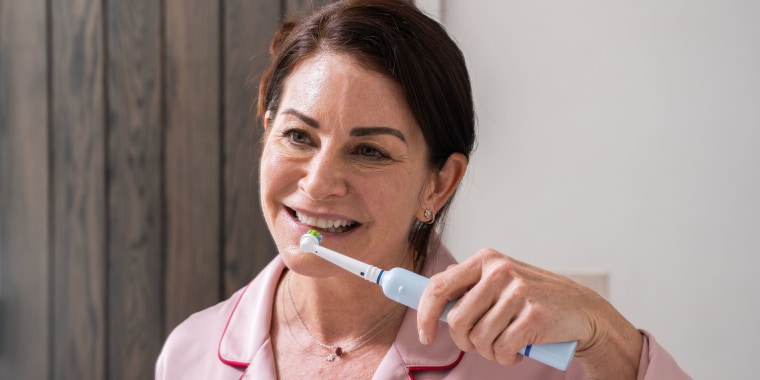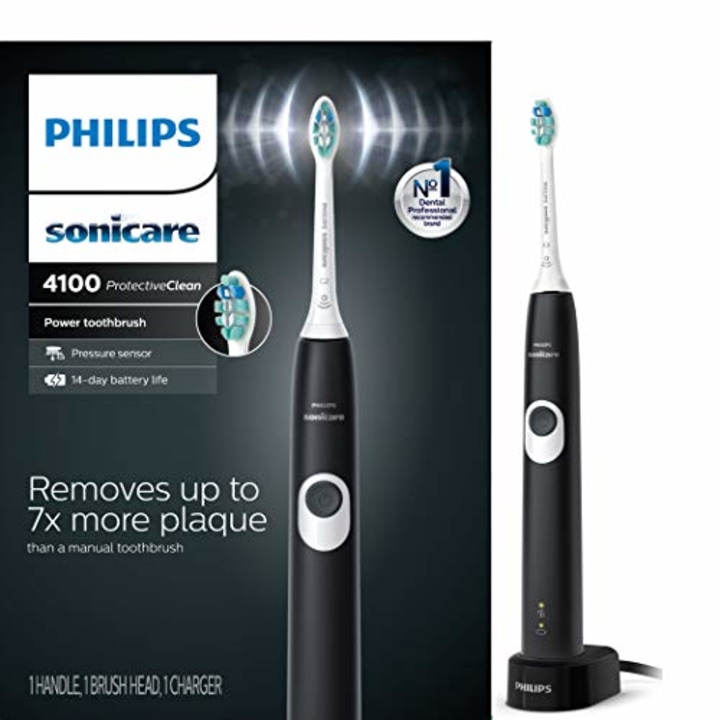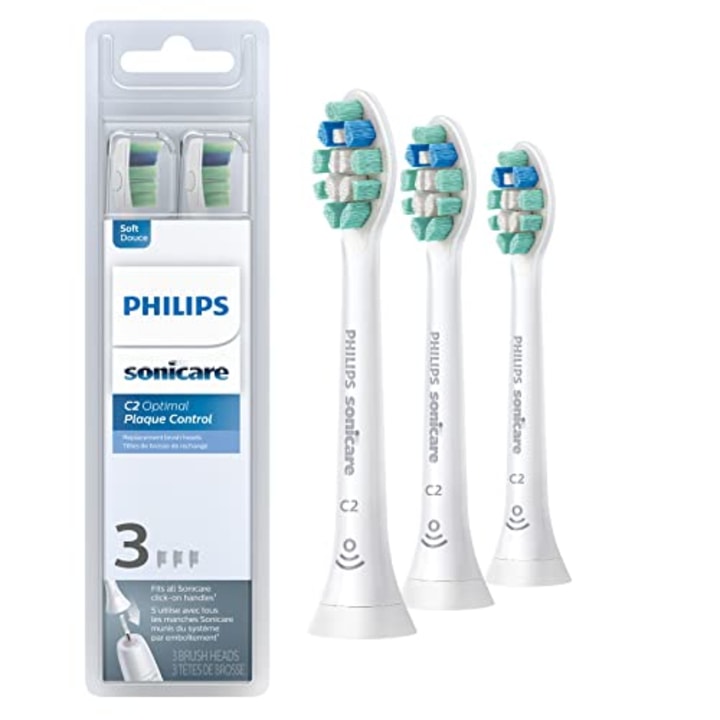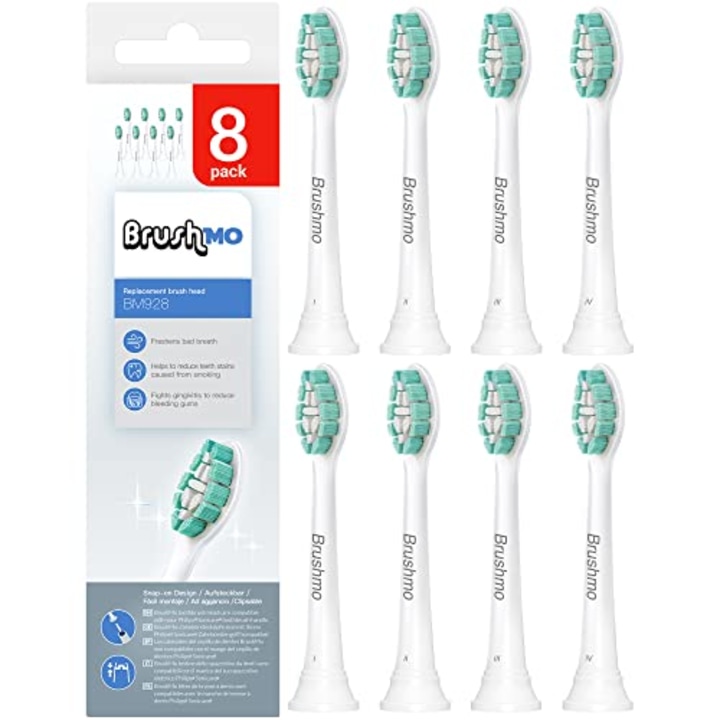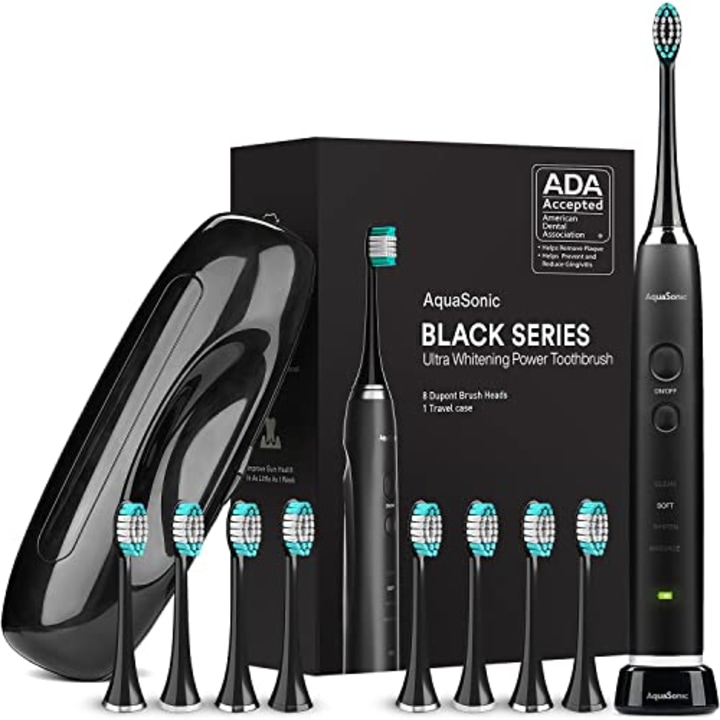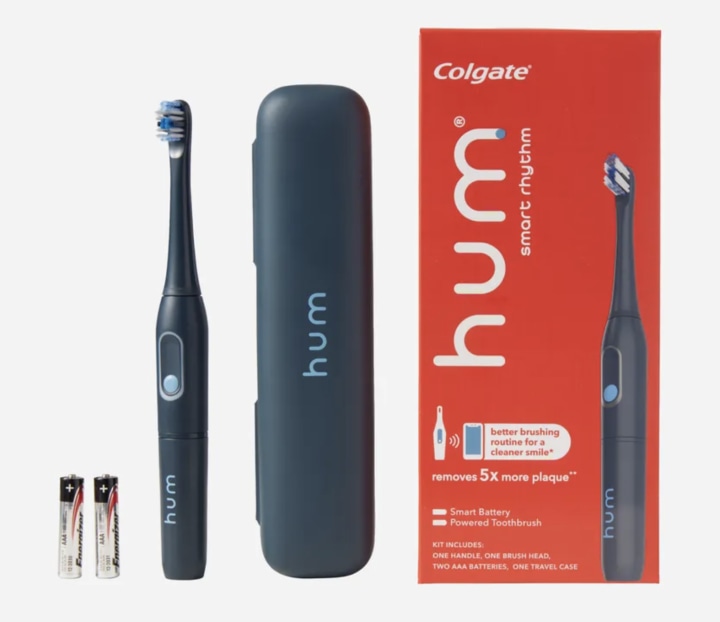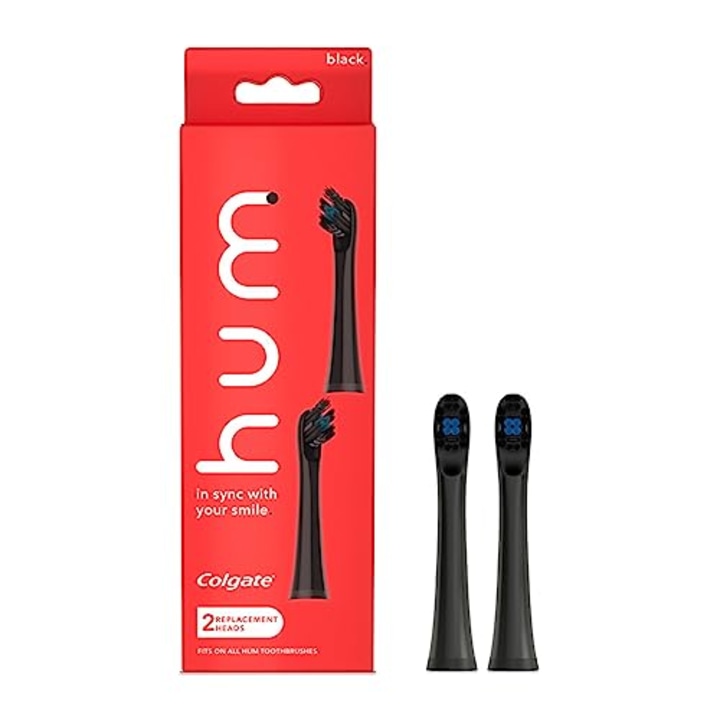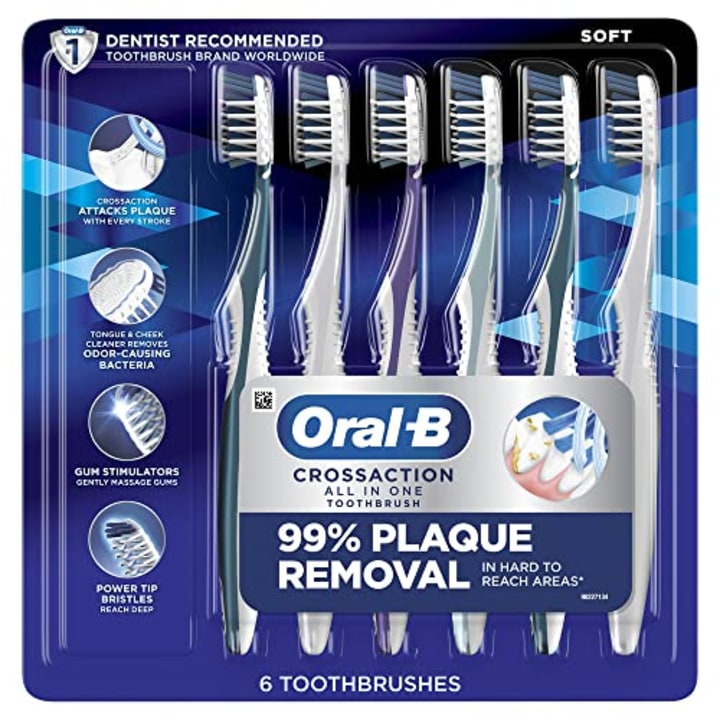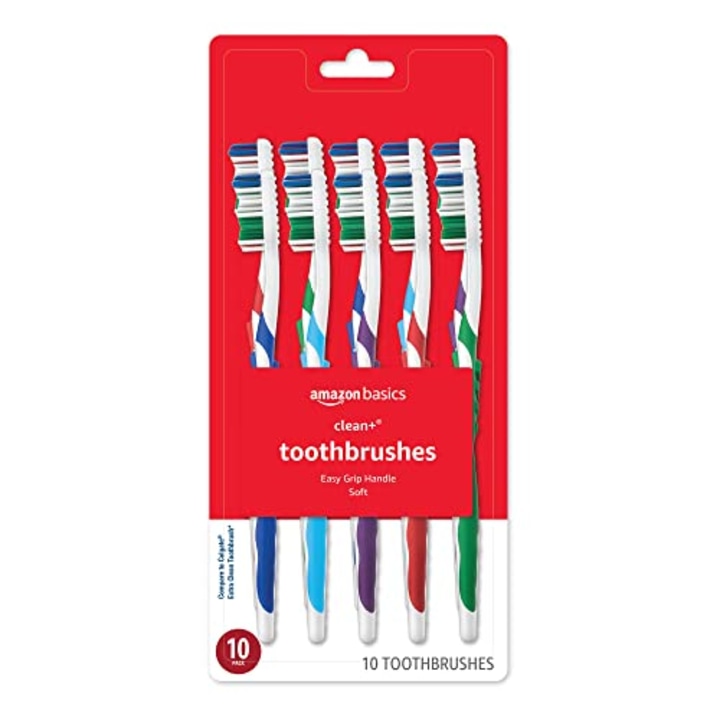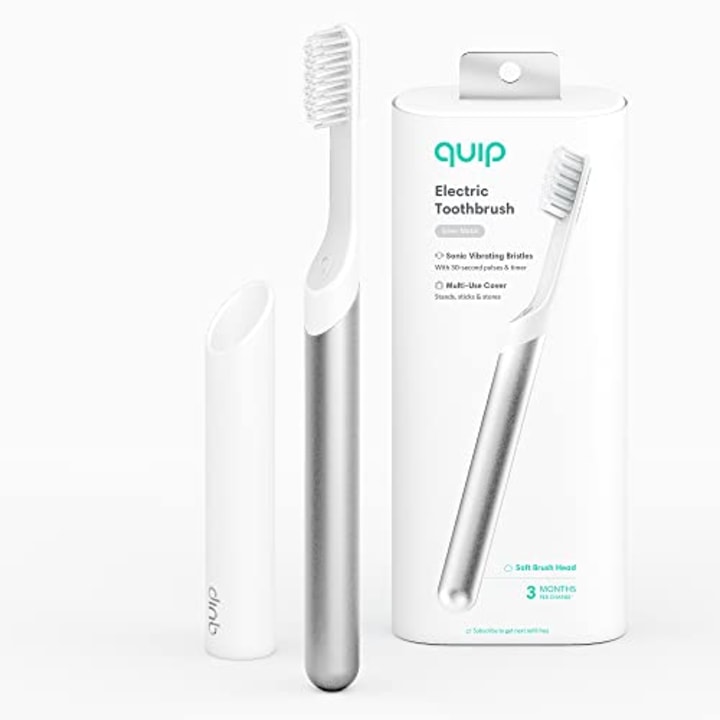If you're brushing your teeth as often as you should be (twice a day for two minutes, at a minimum!), your toothbrush will get subjected to quite a bit of wear and tear over the course of a few months. That's why experts recommend replacing it pretty regularly.
"It is so important to replace your toothbrush head to maintain good oral health," says Dr. Michael Wei, a cosmetic dentist in New York City.
But, most people don't do it often enough, he says. After all, can you remember the last time that you replaced yours? So we asked the experts how often you really need to replace your toothbrush and why it's so important that you do it in the first place.
How often should you replace your toothbrush?
All three experts we spoke to agreed that a good rule to follow is to replace your toothbrush every three months.
"I usually recommend my patients change them a little bit sooner than that, around the two-month mark," says Dr. Richard Lipari, a dentist in Chappaqua, New York.
One way to tell if your toothbrush or electric brush head needs to be swapped out is to look at the bristles. "When you get a new brush head, if you look at it, the bristles are all really tightly packaged together, they're really close to each other," explains Dr. Lior Tamir, a dentist in Silicon Valley, California. "As you use it, they bend, they flare out and there's more space between the bristles." When you start to notice that happening, that's a good sign that it's time to replace it.
Electric toothbrush heads tend to get worn out faster, Tamir adds, so you might notice that they need to be replaced more often.
Why is it important to replace your toothbrush?
The simple truth is, if you're using an old toothbrush, you simply won't get as much out of a brushing session as you should.
"Essentially, the bristles themselves will get worn out, they'll get bent ... and so they become just a lot less effective, they're not as firm, so they become a lot less effective at just removing plaque and buildup on the teeth," Tamir says.
But it's not just that, there's also a bacterial factor. Over time, bacteria will build up in your mouth and create a sticky layer around your teeth called a biofilm, Tamir says. "And so you're trying to break that up physically and remove it with your with your brush. But that biofilm will start building up on the brush head as well."
That bacteria that builds up on the brush will make its way back into your mouth when you brush, and can lead to potential cavities, Wei says. Also, since an old brush likely won't clean as efficiently, it could leave you at risk for developing gum disease and cavities.
How to take care of your toothbrush
To keep your brush in good shape and help prevent bacterial growth, you want to keep it in a place where it can easily dry, Lipari says. Some people put it in a case right after using it, but that's not the best idea. "You don't want to leave the moisture enclosed in a tight environment like that, it's kind of a breeding ground for bacteria," he says.
While it may seem obvious, you also want to make sure that you're rinsing it thoroughly after every use. "Hot water is always better," Lipari suggests.
You also don't want to leave it in direct sunlight or an overly warm area, as that can promote bacterial growth, Tamir adds.
Can you share a toothbrush with someone?
Since we were talking to the experts about toothbrush hygiene, we had to ask them about a hot topic — sharing toothbrushes. And while you might think that using your partner's toothbrush every so often isn't a big deal (is it really that different from smooching?), it is.
"I'll give you an analogy or a different use case. We tell parents not to break down food for their kids and then feed it to them, because you're trying to avoid giving the bacteria in your mouth to your kid to help avoid cavities in little children," Tamir says. "It's the same idea if you're using your brush and then you give it to someone else. It doesn't matter what you do, it doesn't however much you clean it, you're passing along bacteria from your mouth to your partner or whoever you're sharing your toothbrush with."
While Lipari also notes that it's not a good idea to share a toothbrush, if you need to use your partner's brush and they have an electric one, you can use the same base but swap out the heads.
So whether you're looking for a completely new toothbrush, or are realizing that it's way past time to swap the head of your current electric model, here are some shopper-loved options to try.
Toothbrushes and toothbrush heads to shop
Philips Sonicare ProtectiveClean 4100 Rechargeable Electric Toothbrush
When it comes to electric toothbrushes, both Lipari and Tamir say that Philips Sonicare was their top choice of brand. This model previously came recommended to us by a dentist who said, "the amazing configuration of bristles on this electric toothbrush makes you actually feel like the bristles are getting in between the teeth and the vibrating power of the brush leaves your mouth feeling like your teeth have been thoroughly cleaned, as if they had been done in a dental office.”
Philips Sonicare Genuine C2 Optimal Plaque Control Toothbrush Heads
If you already have a Sonicare toothbrush, you can swap out your old head for these. They're said to be compatible with all click-on rechargeable toothbrush handles from the brand. And they feature a power tip that's designed to help you tackle plaque in the hard-to-reach areas of your mouth.
Brushmo Replacement Toothbrush Heads
For less than $20, you'll get eight replacement heads in this pack, so you should be set for the entire year. They're designed to be compatible with most Philips Sonicare brushes and are a customer favorite with more than 20,000 five-star ratings.
Aquasonic Black Series Ultra Whitening Toothbrush
This bestselling toothbrush, which has more than 77,000 perfect five-star ratings from shoppers, comes with eight brush heads, so you won't have to think about buying more for a while. It has four brushing settings, including standard clean, soft and whitening modes.
Colgate Hum Smart Rhythm Sonic Toothbrush Kit
This affordable and battery-powered electric toothbrush is under $25. Featuring a slim design, it comes with a travel case so you can keep up with your oral hygiene on the go. It also has smart capabilities; you can sync it with the Hum app and track your total brush time and frequency, so you can hold your habits accountable and stay on track.
Colgate Hum Refill Toothbrush Heads (Pack of 2)
Coming in a pack of two, you can grab replacement heads for under $10. According to the brand, the bristles are safe for sensitive gums and features a tongue cleaner. You can buy the matching color, or change it up with a different shade.
Oral-B CrossAction All-In-One Soft Toothbrushes
If you prefer a manual toothbrush, try these ones from Oral-B. While the brushes have soft bristles, they're still meant to be hard on plaque. According to the brand, they have a CrossAction design that attacks plaque five times with each stroke.
Amazon Basics Clean Plus Toothbrushes
You'll get 10 toothbrushes in this affordable pack. Along with soft bristles, each brush is said to feature a textured tongue and cheek cleaner and a comfortable handle, so it's easy for little or big hands to use.
Quip Metal 2-Minute Timer Electric Toothbrush
Quip's electric toothbrush is another option that was previously recommended to us by a dentist. Not only will the sleek design look good sitting on your countertop, but it also has other key features like a soft-bristle brush head and a two-minute brushing timer. You can also subscribe to a refill plan from the brand for as little as $5 every three months, so you'll never be stuck using an old brush head.
Meet our experts
- Dr. Michael Wei, DDS, is a New York City dentist specializing in general, cosmetic and restorative dentistry.
- Dr. Richard Lipari, DDS, is a dentist in Chappaqua, NY, focusing on cosmetic, restorative and implant dentistry.
- Dr. Lior Tamir, DDS, is a cosmetic and reconstructive dentist in Silicon Valley, California.
